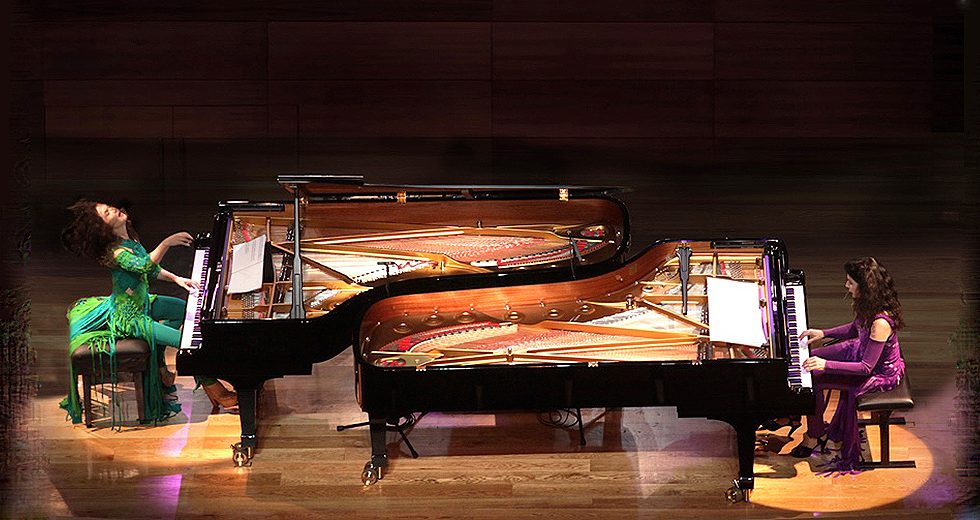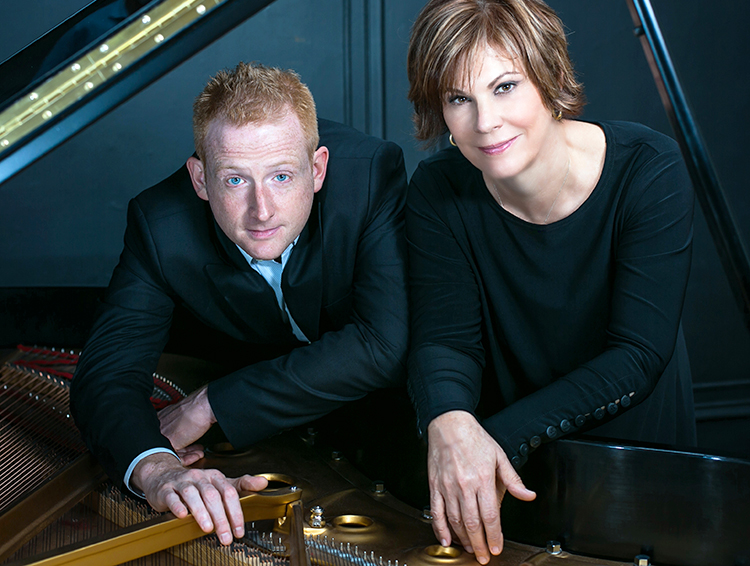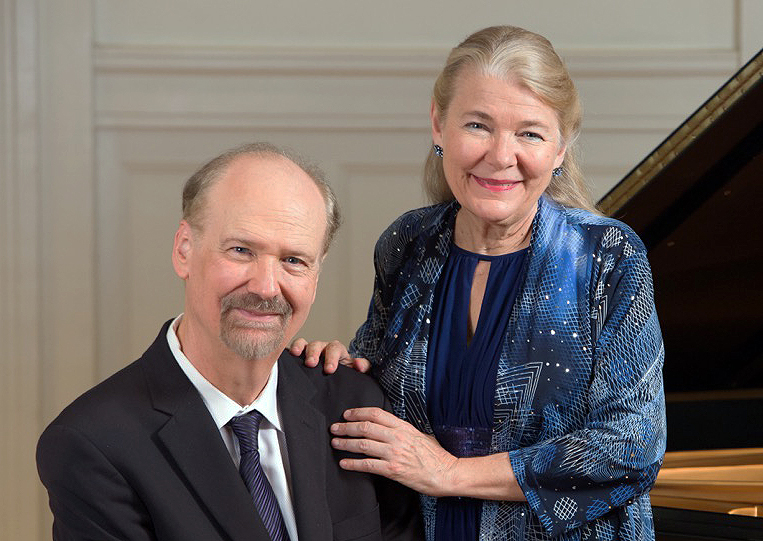
A solo piano recital can be one of the most compelling events in classical music. But pair two pianists, each with his or her own musical styles and predilections, at the keyboards of interlocking 9-foot concert grands, and the results can be even more electric. That’s why piano duos have been popular with composers and audiences for a few centuries.
The French-born sisters Katia and Marielle Labèque make up one of today’s best-known duos; they will join the Chicago Symphony Orchestra, under guest conductor Semyon Bychkov, in Bruch’s rarely programmed Concerto for Two Pianos on May 3-5.
Ahead of those concerts, Katia Labèque and two other duo pianists disclosed what they consider to be the five essential ingredients for a successful pairing:
Katia Labèque
Imagination and courage: You need to build up your repertoire. If you are going to play the Lutoslawski Variations (On a Theme by Paganini) or the Brahms-Haydn Variations, which are fabulous, beautiful and fantastic — all the piano duets play this same repertoire. You need to invent new repertoire. You need to work with modern composers, living composers. You need to explore.
Availability: My sister and I are available to each other. To be able concentrate the necessary time to learn new music or to work on a piece that we’ve been playing and playing, to work on it with new light and new direction [is essential]. If one is in London and the other is in Paris or Rome, it’s not easy for the rehearsals. So the place where we practice is very, very important for us. We are building a new recording studio, and it’s also a way to work, build our programs and reunite.
Differences: If you are going to play the same, it’s not interesting. What’s interesting with Marielle and I is that we have the same approach to the music but the [approach to the] instrument is different. She plays with different qualities, things that I don’t have. So I think we are complementary to each other and that has really helped us very much.
Love: It’s very important to love the people you play with. Without that, it’s all impossible. But it is valuable not just for a piano duet but also for all musicians.

Steven Beck and Susan Grace perform together as the piano duo Quattro Mani. | Photo: Matthew Dine
Susan Grace
She is a member of the duo-piano team Quattro Mani, which specializes in modern and contemporary repertoire. Quattro Mani performed in November in Weill Recital Hall of New York’s Carnegie Hall. She regards these qualities as essentials:
• A sense of humor.
• A similar work ethic.
• A curiosity about new works, including composers who are working now, so that you have a wide range of repertoire.
• The ability to breathe together and just be in sync musically so that you can accompany your partner sometimes and you can solo sometimes, and there is a good balance between the two.

The piano duo of Claire Aebersold and Ralph Neiweem is in residence at the Music Institute of Chicago. | Photo: Michelle Kaffko/MIC
Claire Aebersold
She and her husband, Ralph Neiweem, make up a piano duo that is in residence at the Music Institute of Chicago. She is also co-director of the MIC’s Chicago Duo Piano Festival. The 30th-anniversary edition of the event, which includes lectures, master classes and performances, is set for July 8-22.
Compatibility: Two people who love the repertoire and are comfortable spending a lot of time very closely together.
Individual talent and personality: Both players need to be equally strong, technically and musically.
Ability to listen to each another: To achieve the best result, the sound must overcome individual differences and weave and blend each part together to create a whole sonority. An interpretive vision is essential.
Patience: Piano duos, perhaps along with the string quartet, are the most difficult of all small ensembles. The precise attack of the piano sound makes for time-consuming rehearsals in order to work out an interpretation that gels and breathes.
Sense of humor: Rehearsing a piano duo is fatiguing and intensely exacting work. A good sense of humor really helps to lighten up the atmosphere.
Note: The 2018 Chicago Duo Piano Festival begins with a gala concert July 8 featuring Claire Aebersold and Ralph Neiweem in a program of Beethoven’s Sorrows and Joys, Liszt’s two-piano transcription of Beethoven’s Ninth Symphony and the world premiere of Robert Chumbley’s Cries and Whispers. For more information, click here.
TOP: The French-born sisters Katia and Marielle Labèque are among the classical music world’s best-known piano duos.